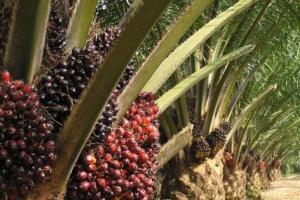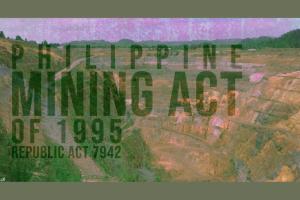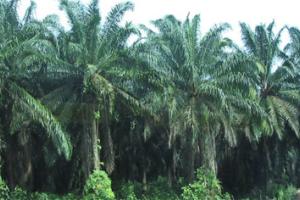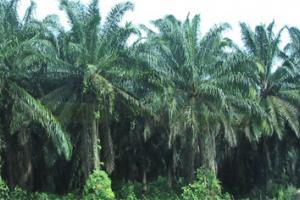Few places in Southeast Asia can match the distinction of Palawan, in the Philippines. This is home to seven protected areas, a declared “Game Refuge and Bird Sanctuary” since 1967 and a “Mangrove Reserve” since 1981. UNESCO declared the whole Province a ‘Man and Biosphere Reserve’ in 1990.
Philippines
Bulletin articles
11 September 2013
Other information
11 September 2013
Solo disponible en inglés -
Agribusiness large-scale land acquisitions and human rights in Southeast Asia - Updates from Indonesia, Thailand, Philippines, Malaysia, Cambodia, Timor-Leste and Burma
Forest Peoples Programme, August 2013
By Marcus Colchester, Sophie Chao, Jonas Dalliner, Su Mei Toh, Chan Kiev, Indriaswati Saptaningrum, Mark Anthony Ramirez and Juan Pulhin
Ed: Sophie Chao, Forest Peoples Programme
Other information
11 September 2013
Agribusiness large-scale land acquisitions and human rights in Southeast Asia - Updates from Indonesia, Thailand, Philippines, Malaysia, Cambodia, Timor-Leste and Burma
Forest Peoples Programme, August 2013
By Marcus Colchester, Sophie Chao, Jonas Dalliner, Su Mei Toh, Chan Kiev, Indriaswati Saptaningrum, Mark Anthony Ramirez and Juan Pulhin
Ed: Sophie Chao, Forest Peoples Programme
Bulletin articles
30 April 2013
The indigenous network ALDAW in the Philippines(Ancestral Land/Domain Watch) is deeply concerned about the findings of a recent study it carried out in Southern Palawan. The research shows that oil palm development is impoverishing local indigenous communities while destroying biologically diverse environments. The ALDAW case study “The Palawan Oil Palm Geotagged Report 2013.
Other information
30 March 2013
ALDAW has just launched a massive campaign against oil palm expansion. A petition launched through care.org is addressed to the National Government. A second petition, launched through Change.org, is focused on Palawan and it is addressed mainly to the Provincial Government, to the Palawan Council for Sustainable Development (PCSD) and to the National Commission on Indigenous Peoples (NCIP).
Other information
30 March 2013
A rally of indigenous groups demanding the revocation of the law marked the 18th year of the Philippine Mining Act .
The groups declared that after 18 years, the country has had more than enough reasons to call for the termination of the disastrous and killer mining law. “Corruption, violence, human rights violations, chilling disasters one after another –these are what Filipinos have suffered as a result of implementing the Mining Act of 1995,” Bayan Muna Partylist Rep. Neri Colmenares said.
Bulletin articles
27 February 2013
The Philippines has a great variety of minerals, including gold, copper, nickel, chromite, manganese, silver and iron. Mineral extraction increased rapidly after it was liberalized by the Philippine Mining Act of 1995, which gives full rights to foreign transnational mining corporations in indigenous territories, including 100% ownership, repatriation of profit and tax holidays thus violating indigenous peoples’ ancestral land rights.
Other information
27 February 2013
"Gentle Treasures: Stories of women against mining", launched in March 2012 by Alyansa Tigil Mina (Alliance to Stop Mining), commemorates the contributions of Filipino women to the struggle against large-scale mining and the promotion of human rights, at http://es.scribd.com/doc/96588780/Gentle-T
Other information
30 January 2013
Through its Google Group and Facebook page Aldaw will provide periodical updates of news and articles on oil palm development in the Philippines, as well as globally.The bulletin may include information and news on related topics suchas biofuels, bioenergy, industrial agriculture and forestry monocultures. There will be no specific dates for releasing the bulletin which will be circulated as soon as a sufficient amount of information is collated.
Other information
30 December 2012
The community-based organization Pangalasag is a member organization of the regional alliance Kalumbay and an organization of Higaonon indigenous people in the municipality of Opol, Misamis Oriental. “Pangalasag”, which means indigenous shield, was created to become a driving force in the resurgence of Higaonon customary laws especially in decision-making and granting of consent, aside from its literal meaning to defend against aggressors.
Other information
21 September 2012
ACTION ALERT - THE PHILIPPINES
The indigenous peoples (Higaonons) and peasants of Opol in Misamis Oriental in Southern Philippines are currently struggling against land grabbing resulting from a monoculture oil palm plantation, promoted by the A Brown Company, Inc (ABCI). Since the beginning of the plantation’s operations, Higaonons and other villagers have experienced severe human rights violations such as forced eviction, illegal arrest, strafing and harassment.




